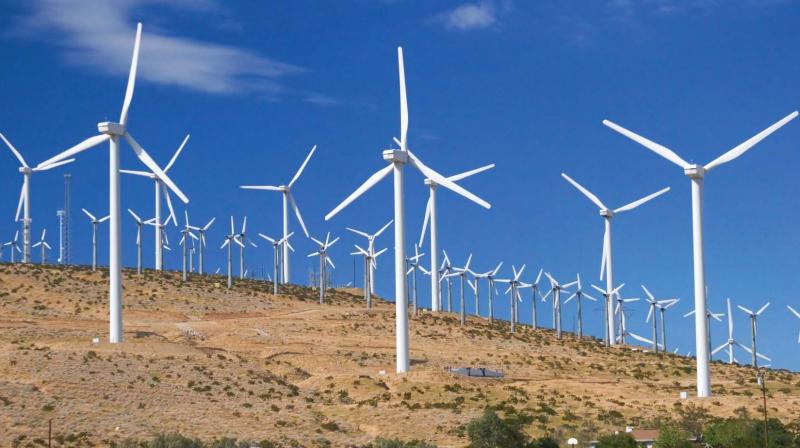By invitation: Ecology's a ruthless business, Mr Trump
The Paris Climate Agreement was drafted in late 2015 and received the support of 195 countries on April 22, 2016.

Donald Trump’s decision to withdraw from the Paris Climate Agreement to "protect the United States of America and its citizens" against a "draconian" and "bad" law was, predictably enough, met with a smattering of Republican applause. What may have been intended as a deathblow to the global environment agenda, however, achieved exactly the opposite effect, serving to unify the world in its support of climate change.
The Paris Climate Agreement was drafted in late 2015 and received the support of 195 countries on April 22, 2016. The agreement was signed in favour of slowing down global warming by "holding the increase in the global average temperature to well below two degrees Celsius above pre-industrial levels and to pursue efforts to limit the temperature increase to 1.5 degrees Celsius above pre-industrial levels." This would be achieved through lowering greenhouse gas emissions by encouraging countries to voluntarily pledge emissions reduction targets. Developed countries also agreed under the Agreement to provide finance and technology support to developing countries. Developed countries have pledged a minimum of $100 billion dollars from 2020.
The rest of the world might stand firm in its resolve to uphold the Paris Treaty, but the United States maintains a global economic stronghold (despite its claims to the contrary) and this decision is likely to upset the balance in what has so far been a more or less unified approach to mitigating climate change. The U.S. is the largest historical polluter in the world, responsible for 21% of the carbon stock in the atmosphere and one of the highest per capita emission rates. It has already exhausted its ‘carbon budget’.
America’s active participation, therefore, is crucial if the terms of the Paris Agreement are to be met. There are indirect implications as well, likely to play out in developing countries, thanks to Trump’s decision to backtrack on the Green Climate Fund (GCF). The fund, which comprises contributions from developed nations, will enable developing countries in their journey towards sustainable growth and also provide aide during climate-related disasters. In 2016, then-president Barack Obama pledged a sum of $3 billion to be paid over the years – twice as much as the second largest contributor, Japan. Trump has decided to withhold $2 billion, thereby, putting a question mark on the future of GCF.
The Trump administration has shown a distinctly regressive approach toward global warming, with its overt encouragement of fossil fuels. Impassioned declarations of love for the coal miner population must be seen for what they are: mere rhetoric. Coal is dying in the US. It provides mere 70,000 jobs, less than a moderate sized super store chain. Blaming Paris Accord for the demise of coal is falsehood, to put it politely! Environmental restrictions cannot be held responsible for the United States’ languishing coal industry. The sector’s biggest setback lies in the fact that shale gas is a widely available and far cheaper source of energy. In fact, so cheap that renewable energy can’t compete with this polluting fossil fuel. The U.S. is moving out of Paris Agreement because Trump wants cheap shale gas to drive growth.
Trump blamed Paris agreement shifting jobs and growth out of the US to India and China. But, contrary to Trump’s beliefs, jobs are not moving out of the U.S. because of environmental restrictions that he claims tilt the balance in favour of developing nations - it is simply because American industry is unable to compete. Better quality goods are produced at lower prices in India and China. That the US is donating jobs to our country is a canard.
India, which found itself on the receiving end of a Trump tirade, was unjustly described as an "illegitimate beneficiary of the Paris climate pact. "India will be allowed to double its coal production by 2020. Think of it: India can double their coal production. We're supposed to get rid of ours," he said. India, however, has always maintained a clear stand in support of global warming, with Prime Minister Narendra saying in Germany that failing to act on climate change would be "morally criminal."
Coal currently accounts for about 60% of Indian power generation and as a developing nation, we cannot afford to shut down the industry in its entirety. However, we are working extensively towards a greater reliance on renewable energy, having made great leaps in solar, hydro and wind energy sources. About 30% of India's energy is now green and the renewables sector is recording significant growth. In May, 500 MW of solar capacity was auctioned at '2.44 per kilowatt-hour, which is 20% lower than the cost of power from coal. India, therefore, has decide to decisively shift to renewables which good for the climate and good for growth.
As far as the global war against climate change goes, the recent turn of events is hardly ideal. The U.S. cannot be allowed to hold the world ransom to its own economic ambitions, which the Paris Treaty had, in principle, hoped to curb. However, it does put India, with her thriving renewables industry, at the forefront in our collective struggle for sustainability.
The writer is Deputy Director General, Centre for Science and Environment, Delhi (As told to Darshana Ramdev)

